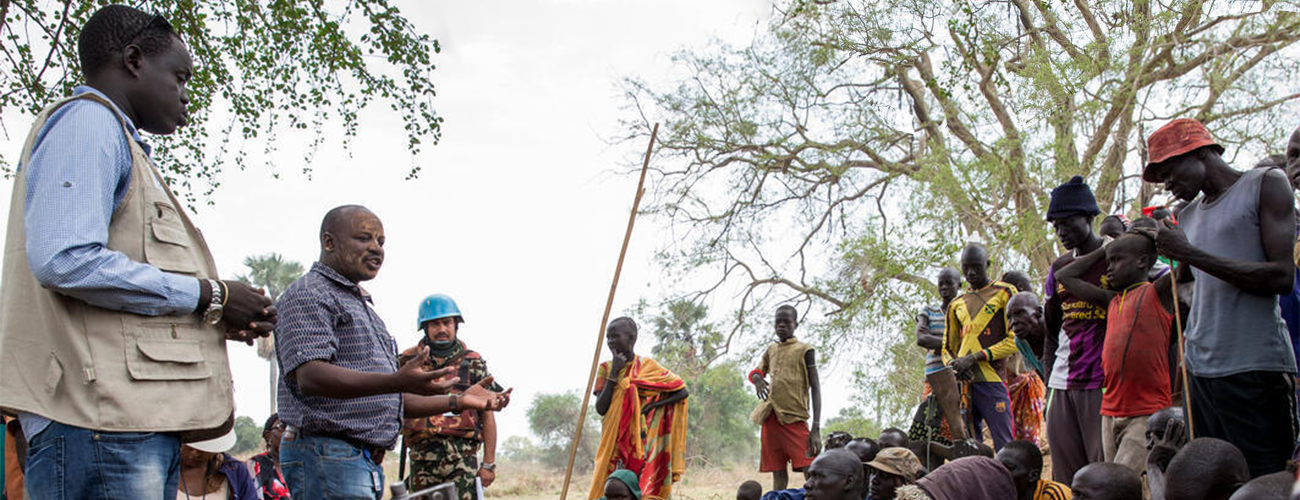The civil affairs division of the UN Mission in South Sudan (UNMISS) leads a conflict-resolution roundtable discussion at the Gun cattle camp in Marial-bek with support from the UNMISS Lakes state coordinator’s office; relief, reintegration, and protection office; human rights division; public information office; and Nepalese battalion, who provided force protection. April 21, 2015. UNMISS/JC Mcilwaine.
Track-1 mediation processes have increasingly struggled to deliver comprehensive peace agreements that address fragmented conflict dynamics and include local communities’ needs. As a result, local mediation has increasingly been a focus for the UN, including for UN peace operations. UN peace operations can play an important role in supporting local mediation initiatives, whether these initiatives are separate from, complementary to, or integrated into national processes.
Watch the January 20th event about this paper>>
This paper considers how local mediation fits into the broader political strategies of UN peace operations. Building on a series of country case studies published by IPI and the UN Department of Political and Peacebuilding Affairs’ Mediation Support Unit, it provides preliminary answers to whether, when, where, and how the UN can engage in local mediation efforts. It explores what capacities the UN would need to increase its engagement in local mediation, what role it can play, and how it could better configure itself and engage in partnerships.
While this paper does not advocate for UN peace operations to engage more or less in local mediation processes, it concludes that missions ought to assess whether, when, and how short-term investments in local mediation can contribute to longer-term, sustainable conflict resolution. In each case, they should tailor their role based on informed strategic decisions and appropriate partnerships and as part of a broader effort to strengthen and foster greater coherence in national peace processes.








